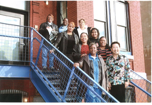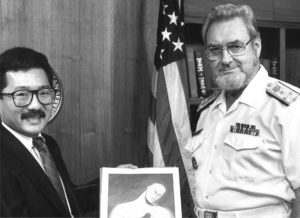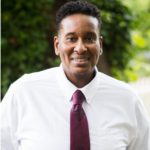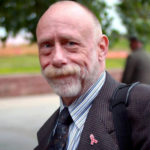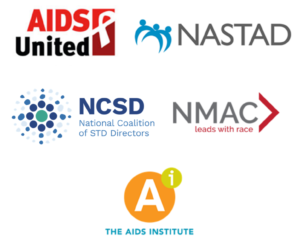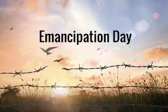 NMAC will be closed today as we celebration Emancipation Day. On April 16, 1862, President Abraham Lincoln signed the Compensated Emancipation Act and freed more than 3000 slaves in the District of Columbia. However, slavery did not end in the rest of the United States until after the American Civil War, which lasted until 1865. In honor of this important day, here is an email from jessi Mona Cartwright-Biggs where she calls out NMAC. With her permission, I am sharing this email because it is a treatise on the power of language.
NMAC will be closed today as we celebration Emancipation Day. On April 16, 1862, President Abraham Lincoln signed the Compensated Emancipation Act and freed more than 3000 slaves in the District of Columbia. However, slavery did not end in the rest of the United States until after the American Civil War, which lasted until 1865. In honor of this important day, here is an email from jessi Mona Cartwright-Biggs where she calls out NMAC. With her permission, I am sharing this email because it is a treatise on the power of language.
Howdy from Positive Women’s Network-USA Greater Houston Area, Texas Chapter.
 I am a proud NMAC Member. I joined when I first heard of you. You were kind enough to feature me in your Newsletter AND in my ignorance, I did not realize I was going public. Yikes! It’s all good now, no worries.
I am a proud NMAC Member. I joined when I first heard of you. You were kind enough to feature me in your Newsletter AND in my ignorance, I did not realize I was going public. Yikes! It’s all good now, no worries.
The benefits of being public with my status, as a Black American Senior Woman living with HIV has been so rewarding. I want to mention that the shame, guilt, and loneliness are no longer a part of my life today. The reasons for this positive [no pun intended] transformation are many. However, I ask you to understand one essential extremely important factor that continues to help me live the life I live today free of Stigmatizing Language.
I am not sure you can identify with the words… However, I can. I am not yellow. I am not brown. I am not green. I am not pus. Pus is an infection and the colors noted are colors of an infection. I am not infected. I am a clean Black woman living with the human immunodeficiency virus called HIV.
I was uneasy, disheartened and not happy to see and read such an abundance of stigmatizing language on your website… hurt.
I am asking for your purposeful & authentic support in promoting an END to the HIV epidemic. I am asking for an immediate project to review and amend the stigmatizing language being used on the NMAC website. Thriving with HIV is a place in a space that need not see, hear nor read stigmatizing language anywhere. I totally get that this will take time. As time changes please adapt and change the harmful language on the NMAC website, please. Thank you.
Peace,
jessi Mona
PWN-USA GHA-TX Chapter
Co-Chair/Out Reach
Reading this email, I felt shame, anger and pride. Shame and anger because NMAC made a mistake, but so much pride in jessi Mona. She spoke truth to power and made her case as only a women living with HIV can. Calling someone out, even your friends, is central for how communities without privilege speak. If you don’t understand this reality, the experience can be alarming. If it’s not happening at your planning council meetings, then you are speaking to the wrong people. Now is not the time to only work with people who agree with your point of view. Leadership understands the importance of honoring the culture and values of the communities we need to reach to end the epidemic.
NMAC hopes community planning councils (or whatever they are going to be called) include orientation by local leaders from the communities needed to be reached and to understand that being called out should be embraced and not feared. For far too long, NMAC tried to make everything perfect. Our movement is too diverse and the culture of being called out is too engrained. Rather than making everything perfect, we’ve had to learn how to embrace the messy nature of our work and the reality that we can’t please everyone.
Our efforts to end the domestic HIV epidemic must reach communities that have eluded previous efforts. We cannot do things the same way and expect a different result. jessi Mona shared another important lesson when she wrote, “The benefits of being public with my status, as a Black American Senior Woman living with HIV has been so rewarding. I want to mention that the shame, guilt, and loneliness are no longer a part of my life today.” Too many suffer from stigma society places on people living with HIV. This stigma can lead to isolation and depression. NMAC believes depression is a major contributor to lack of adherence and falling out of healthcare. jessi Mona became part of a cause bigger than herself when she joined PWN-USA GHA-TX Chapter. Through this community of women living with HIV, she found the support that helped her to rediscover her power and voice. When you believe your life matters, then it’s much easier to do what is necessary to survive.
We are betting on a biomedical solution that will hopefully give us a “herd” theory of immunity, but that only happens when people are retained in healthcare and adherent to meds for decades. After I got her email, I immediately wrote back and said, “I am so sorry, yes, I will ask staff to review and correct.” jessi Mona’s final communication to me:
Oh, Mr. Kawata,
You are the best! Your prompt response and recognition of this important matter have touched me. I appreciate you. Thank you so much.
Peace,
jessi Mona
I shared this story because it put me in a good light, but it didn’t start there. You should also know that I forwarded these emails to staff and let them know our web page needs to be fixed immediately! Please check your web sites, e-newsletters, and social media feeds to be sure your language does not stigmatize the communities you need to reach. This is particularly important for federal HIV communications. As leaders of this effort, you set the tone for all of our work.
Yours in the struggle,
Paul Kawata
